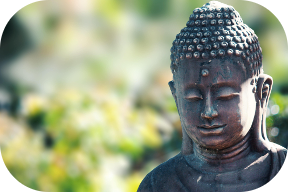Testing EverydayMatters for Adults with Multiple Sclerosis
 What is this research about?
What is this research about?
For many, mid-life is a time of great stress. This stress is different for everyone, but may include launching children into the real world and caring for grandchildren or our own aging parents. For women, this also includes the hormonal changes of menopause. There may also be stress over money as we start to look toward retirement.
For someone aging with multiple sclerosis (MS), this stress may also include changes in health due to MS. Some secondary conditions appear to be worse in mid-life. Sifting through things like long-term care insurance, retiring with a disability, or applying for disability benefits is also stressful. Some people have an amazing ability to cope during these times of great stress; others seem to struggle.
This study's goal two-fold:
- To learn about what resilience means to persons with MS, what facilitators may help someone become resilient, and what barriers may prevent someone from building resilience.
- To test the benefits of the Everyday Matters program in adults aging with Multiple Sclerosis.
What does this study involve?
This study has 2 parts:
- Conduct focus groups and individual interviews – We will talk about the idea of resilience with people with MS, their spouses or care-givers, as well as stakeholders in the MS community (like doctors and advocates).
- Test the program – We will test the Everyday Matters program in another small group of people by doing a randomized controlled trial (RCT). We will evaluate the program to see if it works or not.
About the researchers:
Dawn Ehde, PhD is a rehabilitation psychologist known for her work in chronic pain for people with physical disabilities as well as using self-management programs to help people living with MS. Dawn is interested in positive psychology, such as concepts like happiness, resilience, and coping.
Kevin Alschuler, PhD is a rehabilitation psychologist who sees patients with MS at the UW Medicine’s MS Center. Like Dawn, Kevin is also interested in positive psychology, such as concepts like happiness, resilience, and coping.
Healthy Aging RRTC:
Factsheets - Aging Well with a Physical Disability:
- How to Stay Physically Active
- Hope to Cope with Depression
- How to Sleep Better
- Tips for Improving Memory & Thinking
- Employment Concerns
- How to Prevent Falls
- How to do a Lot with a Little: Managing Your Energy
- How to Get the Most Out of Your Health Care Visits
- How to Find Trustworthy Health Info from the Internet
- Provider's Guide for our Factsheets




